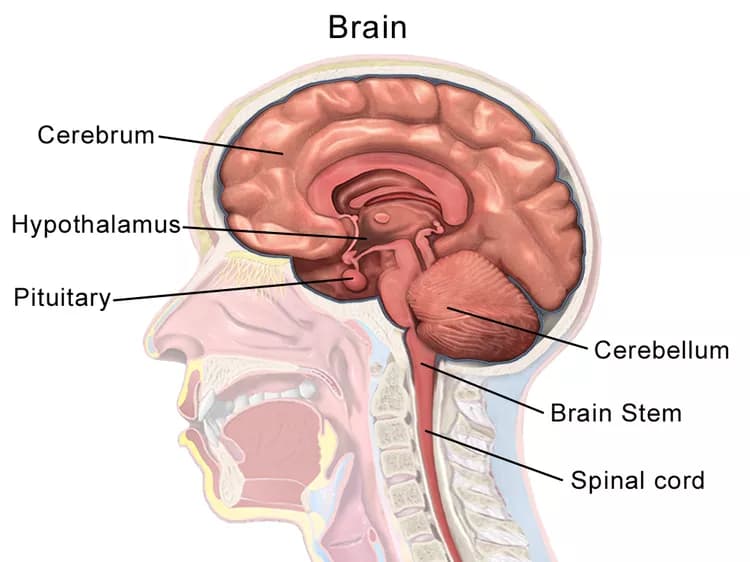
Use Of Multiple Brain-affecting Drugs Is Rising Among Seniors, Despite Risks, Research Finds
The number of older Americans who take three or more medicines that affect their brains has more than doubled in just a decade, a new study finds.
The sharpest rise occurred in seniors living in rural areas, where the rate of doctor visits by seniors taking combinations of such drugs -- opioids, antidepressants, tranquilizers and antipsychotics -- more than tripled.
This "polypharmacy" of drugs that act on the central nervous system is concerning, the researchers say, because of the special risks to older adults that come with combining multiple such medications. Falls -- and the injuries that can result from them -- are the chief concern, along with problems with driving, memory and thinking.
Combining opioid painkillers with certain other brain-affecting drugs such as benzodiazepine tranquilizers is of particular concern, recently receiving the strongest possible warning from the U.S. Food and Drug Administration due to an increased risk of death from combined use.
Publishing in JAMA Internal Medicine, the team from the University of Michigan and VA Ann Arbor Healthcare System reports findings from their analysis of data collected from a representative sample of doctors' offices between 2004 and 2013 by the Centers for Disease Control and Prevention.
While only 0.6 percent of doctor visits by people over the age of 65 involved three or more CNS-affecting drugs in 2004, the number had risen to 1.4 percent in 2013. If that percentage is applied to the entire U.S. senior population, that means 3.68 million doctor visits a year involve seniors taking three or more CNS drugs.
"The rise we saw in these data may reflect the increased willingness of seniors to seek help and accept medication for mental health conditions -- but it's also concerning because of the risks of combining these medications," says Donovan Maust, M.D., M.S., the study's lead author and a geriatric psychiatrist at Michigan Medicine, the U-M academic medical center.
Also concerning: nearly half of seniors taking these drug combinations did not appear to have a formal diagnosis of a mental health condition, insomnia or pain condition -- the three chief types of issues they're usually prescribed for.
"We hope that the newer prescribing guidelines for older adults encourage providers and patients to reconsider the potential risks and benefits from these combinations," he says.
In 2015, the American Geriatrics Society updated its guideline for the use of prescription drugs in older people, called the 2015 Beers Criteria.
Some of the CNS medication groups have been on the Beers Criteria since it was first published in 1997, but this update is the first to raise concern about CNS polypharmacy as potentially inappropriate.
Other work on CNS drugs alone or in combination
Maust, who is an assistant professor of psychiatry at the U-M Medical School, also recently published two other papers on the use of CNS drugs in older people with colleagues from U-M and VAAHS.
In the December issue of the Journal of the American Geriatrics Society, they reported that 5.6 percent of doctor visits by people aged 65 or older included a prescription for a benzodiazepine tranquilizer in 2010.
More than a quarter of those visits also included a prescription for an antidepressant, and 10 percent included a prescription for an opioid drug. Only 16 percent of those who were continuing to receive a benzodiazepine prescription had a diagnosis of a mental health condition. Almost none were referred to psychotherapy.
The data for this study came from the same source as the JAMA Internal Medicine study, the CDC's National Ambulatory Medical Care Survey, though it focused on the years 2007 through 2010.
"Prescribing of benzodiazepines to older adults continues despite decades of evidence showing safety concerns, effective alternative treatments, and effective methods for tapering even chronic users," says Maust.
Meanwhile, in a paper published online-first in Psychiatric Services in January, they report that more than half of 231 older patients who had been prescribed an antidepressant for depression by their primary care doctor for depression (as opposed to off-label use for sleep, for example) did not actually meet the criteria for Major Depressive Disorder.
The patients were participating in a randomized controlled trial aimed at improving depression outcomes and are not considered a representative sample of older Americans, but Maust and his colleagues note that their findings could indicate an over-prescribing trend.
Materials provided by Michigan Medicine - University of Michigan. Note: Content may be edited for style and length.
Disclaimer: DoveMed is not responsible for the accuracy of the adapted version of news releases posted to DoveMed by contributing universities and institutions.
Primary Resource:
Maust, D. T., Gerlach, L. B., Gibson, A., Kales, H. C., Blow, F. C., & Olfson, M. (2017). Trends in Central Nervous System–Active Polypharmacy Among Older Adults Seen in Outpatient Care in the United States. JAMA Internal Medicine. DOI: 10.1001/jamainternmed.2016.9225
Related Articles
Test Your Knowledge
Asked by users
Related Centers
Related Specialties
Related Physicians
Related Procedures
Related Resources
Join DoveHubs
and connect with fellow professionals

0 Comments
Please log in to post a comment.